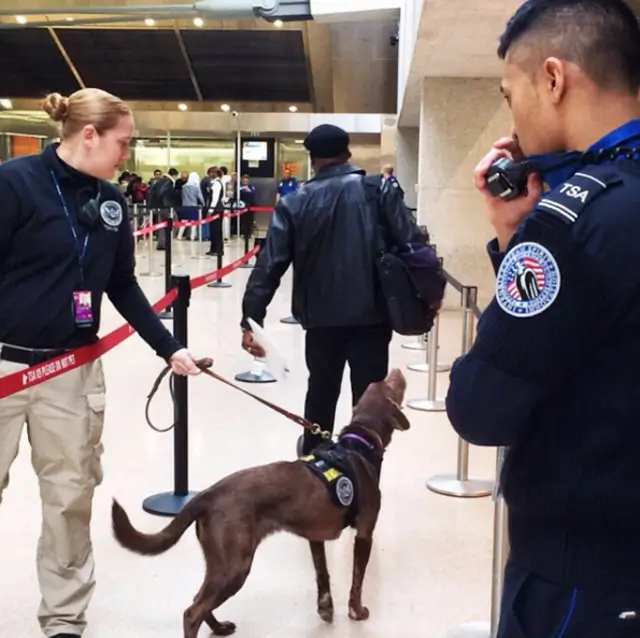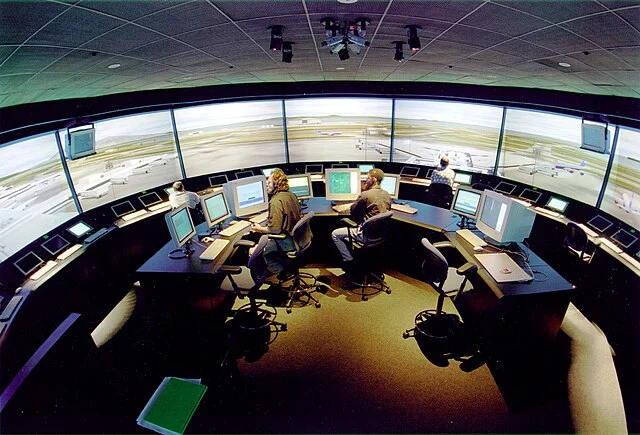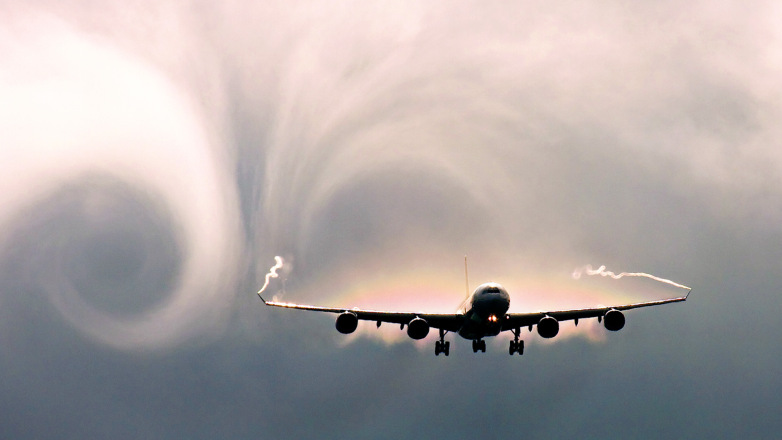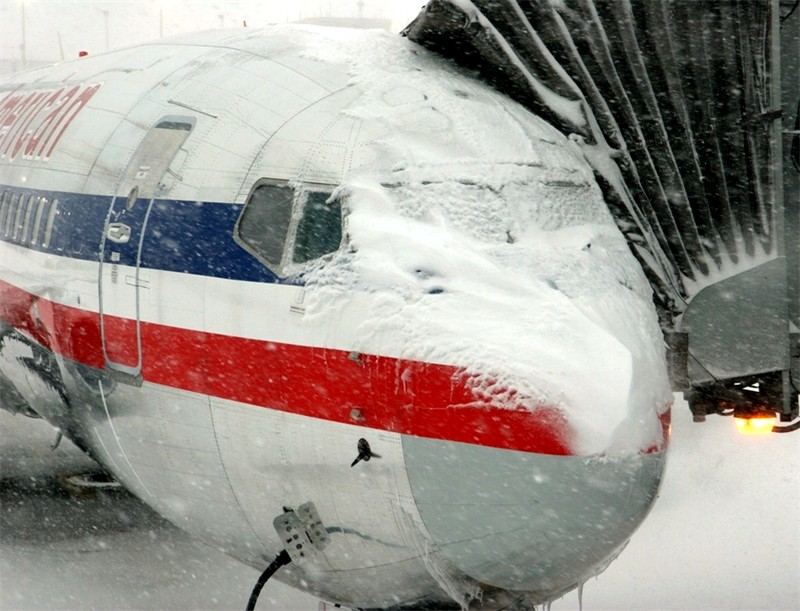Airport Security Jobs - Safe Ground, Safe Skies
Airport Security Jobs are only those nice men and women who help you seamlessly glide through that annoying checkpoint between the hectic departure terminal and the warm, bar-filled sanctuary we call the SRA (Security Restricted Area).
No, my belt-forgetting friends. There’s a whole lot more.
So let me pull you back over to my counter. And show you 250mls of Avsec truth you didn’t know was there. Protecting you, and more importantly, your pets.

There are several Airport Security Jobs and responsibilities at airports, but also with the Airlines. Airlines have Aircraft Protection as well as Aircraft Search. There’s also a variety of off-airport security roles.
Now that I’ve seen your access pass, a swab for illicit substances has come up negative and the drug detection dogs didn’t bark, here are the mandated security roles at Airports.
Passenger Screening
Let’s start with the most recognized security job. Airport Screener. These are those extremely patient and tolerant folks that make sure that you don’t take prohibited articles onboard. Passenger and Baggage Screeners check carry on luggage and checked luggage as mandated by US (and EU and country specific) regulations.
Screeners use a variety of screening tools such as body scanners, x-ray machines, EDS machines (Explosive Detection Systems) and common sense. The vast majority of what passengers experience at screening checkpoints was brought about after the tragic events of 9/11.
Airport Search and Protection
At the start of every day – at all airports – aircraft scheduled for service are fully checked by flight attendants, cleaning staff, ground staff or other specialist teams. The entire aircraft is inspected. The cabin, cockpit, toilets, the aircraft hold and certain other areas we won’t give away. Once checked, the aircraft is then “protected” to make sure nothing or no one tries to introduce any “items”. All Airport Security Jobs are trained specifically for this task.
Baggage Reconciliation
Sounds like a couple of Samsonites making up after a disastrous trip to Las Vegas. But this Airport security job involves making sure every item of baggage is checked and associated with its passenger and is correctly tagged for airport screening. Yes, luggage does go missing and airlines must then send baggage on alone, but that procedure is tightly controlled and secure.

Hold Baggage Screening
This is the most intense and heavily trained Airport Security Job. Checked-in hold baggage completes its own “journey-within-a-journey” in the bowels of airports. Here, multimillion dollar machines scan your luggage to make sure it doesn’t contain items that could be problematic when placed on board a commercial aircraft.
These CT Scanners are fast and extremely accurate, as are the highly trained Screeners who scan the never-ending stream of images. They undergo rigorous, frequent testing designed to make sure they know what they are looking for. If Hold Baggage screeners fail in any of their regular assessments, they’re shown the main Airport door.
Airport Supplies & In-flight Supplies Security
Airport shops and Airline passengers need products to buy, eat and drink and so these products must be securely delivered through checkpoints. Because these products originate from manufacturers outside the airport, Airport Security jobs are created to protect them from the moment they are designated for the airport, to when they arrive at the airport terminal buildings or at the Aircraft.
This is what we call the Secure Supply Chain and it’s designed to make sure these deliveries are not compromised by anyone who wishes to do avoid the screening process.
Air Cargo and Mail Security
Like supplies, a sizable percentage of how airlines make money is by utilizing a portion of cargo payload to sell to companies to use for revenue cargo. Again, a Secure supply chain is created that involves additional security jobs whose sole mission is to get the cargo from its secure starting location…
And deliver it unmolested into the cargo hold of the aircraft. And that’s just part of the cargo story. There’s a multitude of other x-ray machines used on cargo given the unlimited potential of what might be shipped by air.
Airport Security Jobs - Manager
This role is prevalent in both FAA and EASA jurisdictions, Security Manager is an extremely important Airport Security Job. Managers are approved, trained, and certified at the State level. Managers are thoroughly background checked. The job involves managing the creation of the Security Program, its implementation, and its constant evaluation.

Key skills here would be risk assessment, quality management, reporting and excellent interpersonal skills. Some other valuable add-ons could be Dangerous Goods training (Cat 6) and some Lithium Battery awareness. All of these would make you a solid candidate for any entity who is in business at the airport.
What is the NCASP?
Most Airport Security Jobs (apart from Screeners) are doubled-up with other responsibilities at airports. For example, Cabin Crew at most airlines are also tasked (and trained for) the security searches and protection of aircraft. Similarly with airport supplies – Logistics companies train their staff to make sure they can accomplish airport security jobs in addition to their usual roles.
These roles are standard in most countries, but the specifics of approval and training can change. Most use what we refer to as the NCASP (pronounced “Nasp”) which is the National Civil Aviation Security Program. The national authorities obtain this from ICAO use it to instruct regulated entities what their obligations are.
There is an Avsec (Aviation Security) ecosystem where large organizations (including Airlines and Airports) sub-contract security to private companies so the command and control over these agreements is tightly controlled by state entities. In the USA, we rely on the TSA.
Flight Tracker
Moreover, national authorities just love to audit and perform inspections as well as covert operations. They sometimes try to gain access to secure areas, aircraft and even try to slip illicit material and weapons past the checkpoints.
They will board aircraft without ID and wait to be challenged, they will walk on the apron between aircraft and try to load boxes on unattended aircraft. And boy you better catch them. If you don’t, your next role could be watching over cute pilot beany-boos on a stand at the airport bookstore.
To find more information, visit your National Authority website and search for Aviation Security.



